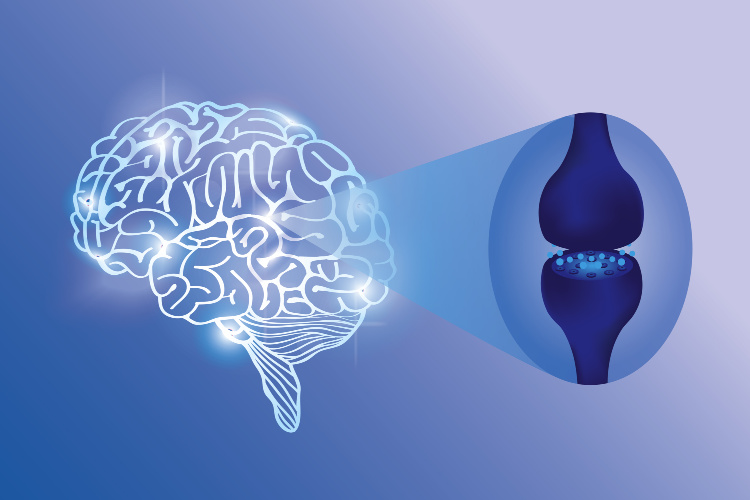You’ve probably heard about how celebrity Montel Williams has treated his Multiple Sclerosis (MS) with cannabis since the 1990s, and how he credits it with relieving his pain and depression. But do cannabis and MS have that relationship for everyone?
Millions of people around the world suffer from the debilitating symptoms of MS, but the good news is many of them find relief every day by using cannabis. In this article we will take a look at the many MS symptoms cannabis can treat and why it works so well – even if you aren’t a celebrity.
What is Multiple Sclerosis?
Multiple Sclerosis (MS) is a disease of the central nervous system (spinal cord and brain) which affects more than 2,300,00 people over the world. It’s a demyelinating condition, which means it causes damage to the myelin. This fatty material insulates the nerves, acting like the outside of an electrical wire. The myelin is what allows the nerves to transmit impulses quickly. Our ability to make smooth, coordinated movements without much conscious effort depends upon the speed and efficiency of these impulses.

When a person has MS, their immune system begins to attack their central nervous system. White blood cells surround the myelin and destroy it. When a person loses healthy myelin (demyelination), they experience a disruption in how the nerves can conduct electrical impulse from the brain. This is what produces the debilitating symptoms of MS. The areas where myelin is lost become hardened and scared, and is why the condition is called multiple sclerosis, meaning ‘many scars.’
Along with electrical impulses, our nervous system works to communicate with the body by sending neurotransmitters between neurons. These messages regulate everything we think, feel, and do by traveling through the synapse (gaps between neurons) and attaching to receptors on the receiving neuron (postsynaptic).
This is where endocannabinoids come into play.
Endocannabinoids and Their Role in MS
Endocannabinoids are a unique set of neurotransmitters that bind to cannabinoid receptors. They work differently than most because they travel backward and are known as retrograde signals. Unlike neurotransmitters like serotonin and dopamine that work with the message receiving neurons (postsynaptic), endocannabinoids work with the message sending neuron (presynaptic). When a sending neuron becomes overactive, it can throw the system out of balance. Endocannabinoids allow the receiving neuron to send a signal back to the overactive sender that it needs to slow things down, bringing the system back into homeostasis.

Anandamide (AEA) is an endocannabinoid that helps regulate the immune system. Research is showing that people with MS have an endocannabinoid system that isn’t functioning at its best because it isn’t producing enough AEA.
Cannabis and MS: How Does it Help?
Because people with MS don’t produce enough cannabinoids on their own, reintroducing them using cannabis has the potential to reduce many of their symptoms.
Here’s what cannabis can do for people with MS:
1. Improve Muscle-Tone and Control
MS patients deal with tremors, muscle spasticity, and poor muscle control daily. Involuntary muscle contractions can cause everything from mild tightness to severe pain and can make life incredibly difficult. Many studies have found that cannabis can control muscle tone, which can significantly improve the frequency and severity of tremors and spasms.

2. Anti-inflammatory Action
People with MS have an immune system that’s in overdrive, which can cause a lot of inflammation in the brain. All this inflammation eventually leads to neural degeneration which can worsen the symptoms of MS and lead to further nervous system damage. Cannabis is a potent anti-inflammatory agent that can work to regulate the immune system, helping to treat MS and significantly reduce many of the associated symptoms.
3. Regulate Mood
MS is an emotionally difficult condition to live with, and up to one-third of patients suffer from depression and anxiety. Mood disorders associated with MS were previously thought to be caused by the diagnosis and prognosis of the disease itself, but new research suggests that mood changes associated with MS are due to brain inflammation.
Cannabis has been effectively used to treat pain for a long time and can reduce painful symptoms in people suffering from MS. Cannabis helps fight pain by mediating the glycine receptors. These receptors regulate how pain receptors can signal the brain and spinal cord.

Medical marijuana can help reduce inflammation, therefore treating the root cause of anxiety and depression. Not only can cannabis help reduce inflammation, but it can also influence the limbic system (emotional brain) and promote feelings of overall well-being
4. Reduce Pain
The best part is that unlike other pain medication, people who use cannabis won’t build up a tolerance to its analgesic effects. That means they won’t need to keep increasing the dosages. Cannabis is also generally non-addictive with minimal side effects.
The effectiveness of cannabis to relieve the symptoms of MS is being recognized in the medical community. What was once only seen as anecdotal tales of an “alternative” medication is now being proven by scientific evidence. We are continuing to learn how cannabis treats the symptoms of MS—and are also discovering its potential to protect and even reverse nerve damage that has already happened.
Want to learn more about cannabis for MS? Schedule an appointment!